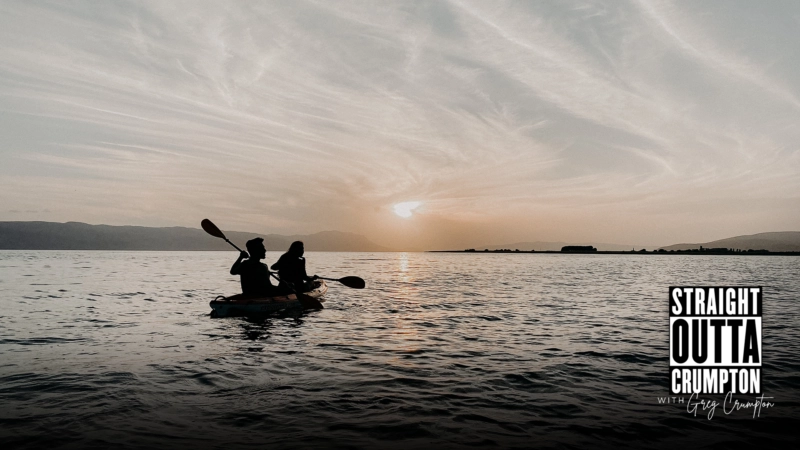River Tales: Olympic Gold Medalist Joe Jacobi on How Canoeing Changed His Life

In the latest episode of the podcast “Straight Outta Crumpton,” host Greg Crumpton was also joined by co-host Tyler Kern, and the two chatted with Olympic gold medalist Joe Jacobi. Over 30 years ago Jacobi won a gold medal at the 1992 Olympic Games in Barcelona alongside his teammate Scott Strausbaugh. The duo clutched a historic win for the U.S. Canoe team, as it was the first-ever gold medal for the country in that sport. Today, Jacobi coaches other people using his knowledge and experiences to guide them. He reflected on his life before and after his Olympic win, and what lessons he’s learned since then.
Jacobi recalled doing an interview about his Olympic quest and remembering how his upbringing in Washington, D.C. prepared him for sports greatness. Even though he stated that the nation’s capital is not what people would think when it comes to whitewater, it was an ideal location for many other reasons aside from the Potomac River, where he normally trained
“Because of its location in an urban area there was this world-class training group there … I remember that … early teenage years that I would go out on the water I was surrounded by world champions and world medalists,” said Jacobi.
Being around world champions allowed Jacobi to meet and learn from various perspectives, particularly from the very experienced athletes he was surrounded by who also trained in the Potomac River. It was via a run-in that he had with a legendary canoer that ingrained in him the mindset, that learning comes in many forms and it’s not only from people above or at your level — learning opportunities can come from people with little to no experience as well.
A vital takeaway Jacobi mentioned was that “learning comes on three levels: you have people that have already maybe accomplished what you want to accomplish, you have the people that are on the same level as you that want to accomplish what you want to accomplish, and then there are people below you that may not have as much experience, but that beginners eye, that beginners perspective on things, it’s a reminder of like they show us things we would not see otherwise,” said Jacobi.
Jacboi likened building a successful sports team is similar to how people generally operate in any workspace or business. And noted that critical time to
“When a new person joins your team …you have this short window to get their perspective on how they see the world from their shoes …. it ‘s so valuable it’s gonna go away. It’s like having a new car, the new smell is going to go away after a week,” said Jacobi.
Unlike other sports where a timeout can be called to stop before proceeding again, Jacobi stated that canoeing and other water activities on the river are vastly different. It sometimes requires quick thinking and decision-making on the fly; the river keeps flowing, just like life does.
Navigating rivers throughout his life as a professional athlete gave him an outlook to see things in a unique way.
“I use the river as a metaphor for giving people a nice clean visual of what we’re doing and what we’re navigating,” said Jacobi.




